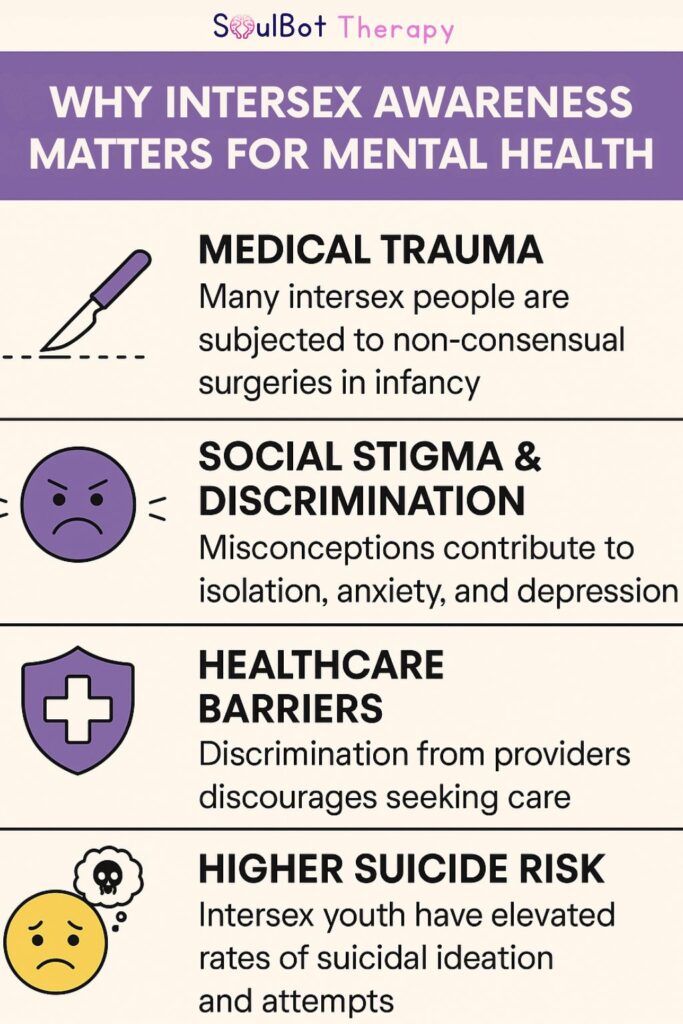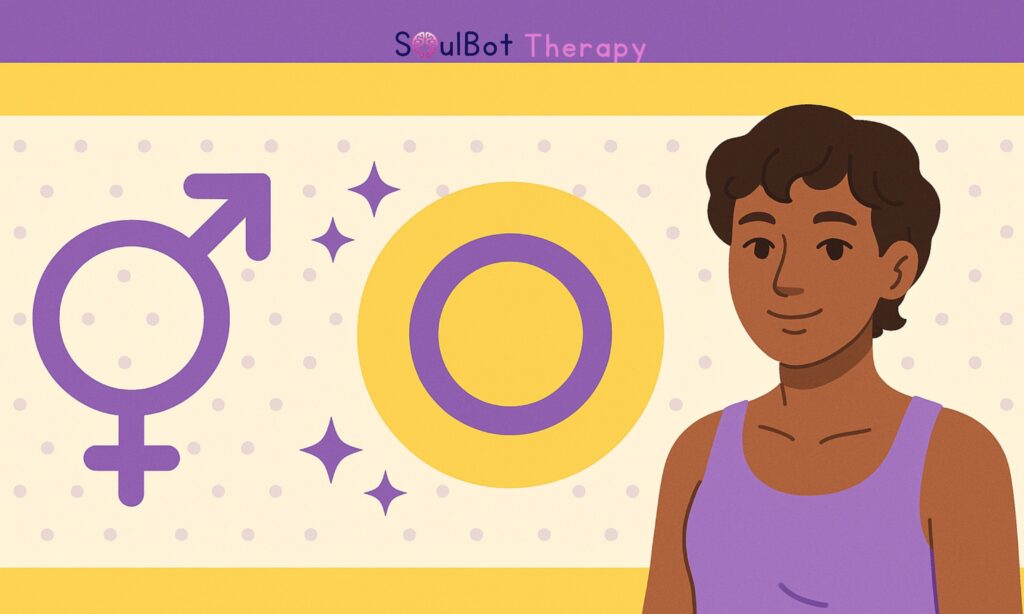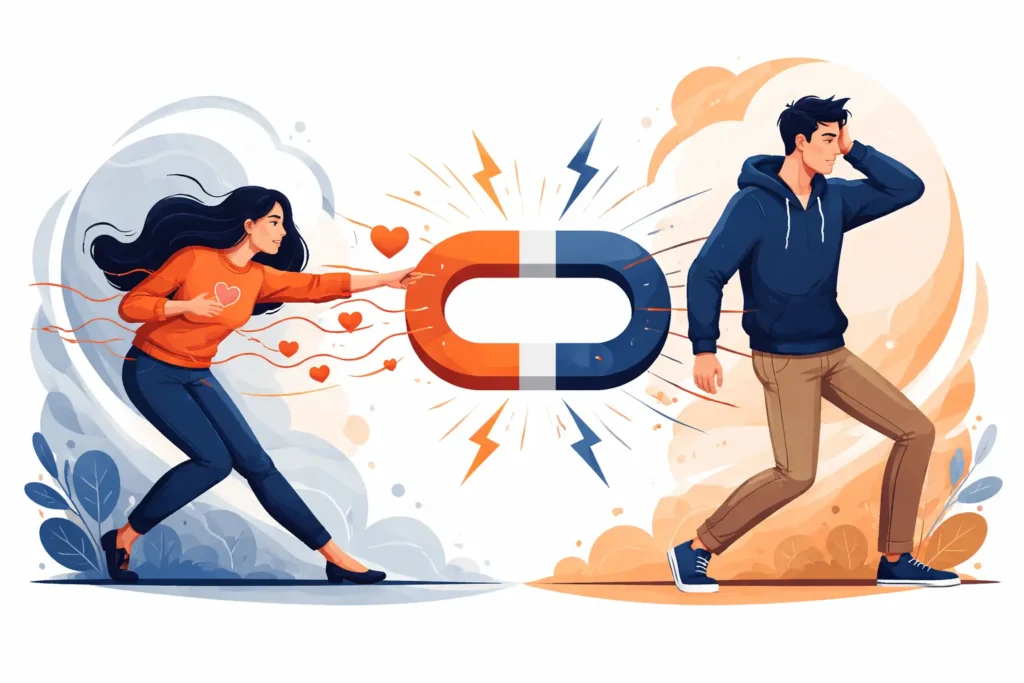What does intersex mean?
You’ve probably heard the term “intersex,” but do you know what it truly means? If not, you’re not alone, and by asking the question, you’re already opening the door to greater inclusion and understanding.
Intersex people are born with physical or genetic traits that don’t fit typical definitions of male or female bodies. It’s more common than you think, affecting roughly 1 in every 2,000 births, yet remains widely misunderstood.
In this blog, we’ll explain intersex, debunk common myths, and explore why intersex awareness matters for mental health, human rights, and social inclusion.
🔍 What Does “Intersex” Actually Mean?
The term intersex refers to somebody who is born with physical sex characteristics (like chromosomes, hormone levels, or genitalia) that don’t fit typical binary definitions of male or female.
It’s a naturally occurring variation, not a disorder or defect.
Intersex people are not the same as transgender people. While being transgender relates to gender identity, intersex is a biological variation in sex traits.
👶 Examples of Intersex Traits:
- Ambiguous genitalia
- Chromosomal differences (e.g., XXY instead of XX or XY)
- Hormonal profiles that don’t align with external anatomy
🚫 Myths About Intersex People (Let’s Debunk Them)
❌Myth 1: “Intersex means both male and female”
Truth: Intersex is about diverse sex traits — it doesn’t mean having two full sets of reproductive organs.
❌Myth 2: “Intersex people are rare”
Truth: They’re as common as redheads, yet invisibility in media & education makes them seem rare.
❌Myth 3: “Doctors always know what gender to assign”
Truth: Many intersex babies undergo surgeries without consent, often leading to long-term trauma.🧠SoulFact: Nearly 2% of the population is born with intersex traits, roughly the same percentage of people with naturally red hair. Despite this, intersex experiences are rarely discussed in mainstream conversations, leaving many individuals without the information or support they need.
Why Intersex Awareness Matters for Mental Health?
Many intersex individuals face:
- Early surgeries and bodily trauma
- Shame and confusion around identity
- Medical secrecy or misinformation
- Lack of representation in school and media
This often leads to anxiety, depression, and isolation, not because of being intersex, but due to how society treats them.
✅ Intersex awareness helps create safe spaces and reduces mental health risks caused by stigma.
👉 Chat with Soul, your inclusive AI Therapy Companion
What Can You Do to Support Intersex People?
🌟 Learn the Terms:
DSD (Disorders/Differences of Sex Development) is often used in medical contexts, but many intersex advocates prefer “intersex” for its affirming tone.
💬 Ask Respectfully:
Use someone’s chosen name and pronouns, and don’t ask invasive questions about their body.
🎓 Educate Others:
Speak up against misinformation, and include intersex awareness in classrooms and workplaces.
📲 Share Real Stories:
Promote intersex voices, creators, and activists. Visibility changes lives.

🧠 How SoulBot Supports Identity & Inclusion?
At SoulBot, our AI-powered mental health assistant isn’t here to label you but to support you.
Whether you’re questioning your identity, feeling unseen, or need somebody to talk to, our platform offers:
- Free mental health assessments
- Mood-aware chatbot support
- Safe, inclusive self-exploration
Final Thoughts: Awareness is Power, But Empathy is Healing
You don’t need to be intersex to advocate for intersex rights.
You need curiosity, compassion, and the courage to question what you’ve been taught about sex, identity, and what’s “normal.”
So let’s build a world where everybody belongs.
📣 Ready to Explore Your Own Identity or Support Others?
👉 Book a Free Mental Health Consultation
👉 Sexuality & Identity Test








